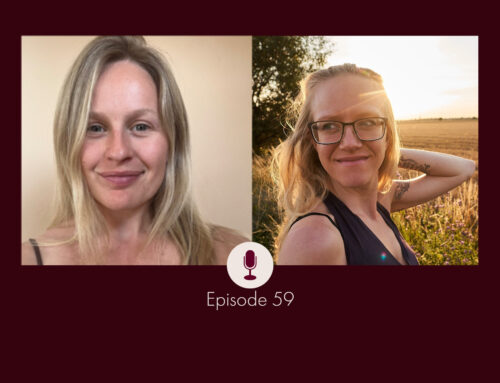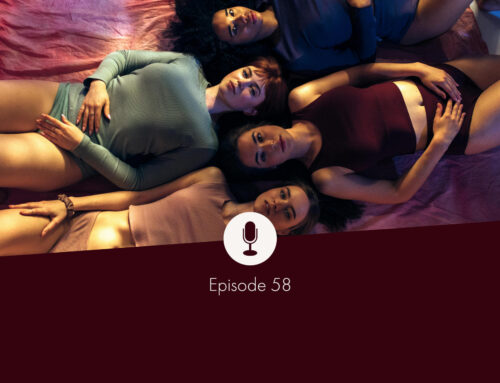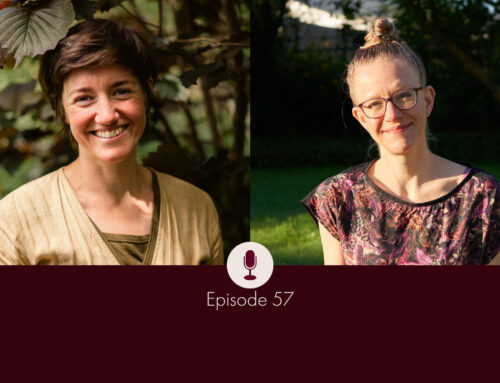Subscribe on your favourite podcasting platform:
Apple Podcasts | Spotify | Google Podcasts | Amazon Music
For many, the concept of boundary setting feels like putting up a rigid wall, excluding or even taking away from others.
Listen to the episode if you want to know my approach to boundaries, which I see as a flexible, malleable process of taking care of your own needs and desires.
If you’ve got any comments, questions, ideas or just want to say Hello, send me an email or use my contact form to get in touch!
I’m looking forward to connecting with you!
Do you prioritise yourself? Do you hold yourself in enough esteem and appreciation to prioritise your own needs and desires? Do you value yourself enough to make sure your energy doesn’t peter out constantly, but that you can have enough moments in your day where you recharge your batteries, your energy? Do you honour your own knowing, your own truth in a situation? That’s the questions I ask myself. [00:04:52] And I believe that when we honour ourselves and value ourselves enough to say “Yes, I have this need or this desire.” – not in a way of “I will do it whatever the cost”, but more like “I have this – how can I make that happen in relation with other people?” – if we know our needs, if we recognise them, if we follow our intuition and our own wisdom on what’s right and true for us, then the question of setting boundaries becomes irrelevant because we follow these nudges. And we put that which is relevant to us, which is meaningful to us, first, without question. Not out of spite, but simply because that’s what’s important for us in our life right now. [00:05:50] And so the reason for this episode was that I reviewed a client session and one thing my client said struck my attention. It was about setting boundaries and she wanted to set healthy boundaries and said “Boundary setting is okay if there are no repercussions, if there are no negative consequences. If it’s not at the expense of someone else.” And well, my first thought was, “If it’s not at the expense of someone else, it might very well be at the expense of you. Do you prefer that?” [00:06:51] And sadly, in our society, people socialised as women in particular think indeed that it’s better to live at their own expense. And I understand that, especially if it’s family, we don’t want to put any suffering on somebody else. But the question is, can you allow them to deal with it, or to learn how to deal with it? Can you believe in them and their own power so much that they will find a way to handle this boundary setting of yours? [00:07:35] Because when we think for them ahead of time, “I can’t do this because then they might feel that way, if I declare that I need some space today.”, then you are robbing them of learning how to deal with their own emotions. You are in a way robbing them of learning how to navigate such a situation on their own. [00:08:09] What would it be like if you could simply trust that they will find a way? So, if you state your needs, which is essentially boundary setting, when you say “I need some space today. I need five minutes on my own without disturbance.”, can you trust that even though they might not like it, they will find a way of dealing with their own frustration? [00:08:50] And another piece of food for thought: if you don’t let them know where this line is, the line of what you need, A) they might simply think it’s okay to ask more than that, because you are always giving. They might not even see and understand that you’re over-giving and that you’re crossing your own boundaries, or that they are crossing a boundary, because you simply haven’t declared “Hey, today, this is how far I can go because I don’t have more left.” [00:09:32] And B) if you still give, it will build resentment in yourself. Your frustration will grow, anger at both yourself and the other will grow, and you might let that out in a passive aggressive comment on the side, or it will become a major outburst. Which is completely understandable, I’m not judging this in any way. I’m just trying to show you the dynamic at play. So, if you don’t say, “This is how far I can go today.”, this frustration will build up. At some point it will come out some way, in a way that you might not like. [00:10:38] So why can’t we say, “Hey, I can do this and I need this. What do you need?” Because I find that this open communication is usually the best way forward. Being honest and open, “Hey, this is what I can give today.”, knowing that it can be totally different tomorrow. You might have more energy tomorrow and can give more, but today this is what you can do. And asking what the other needs and how we can make it happen that we both get our needs met, and negotiate. I know this sounds so transactional, but you get what I mean. Just simply being open and honest and easeful about it. “Hey, I need this today. What do you need? And how can we find a solution where both of us get our needs met?” [00:11:51] And this being open and honest shows the other what it’s like to take care of oneself in a conscious way. You know, it’s not a mean statement to say what you need, at least not in and of itself. Of course it depends on the tone of voice and the energy behind it, but in and of itself you can simply state “this is what I need.” and that will show the other, what it means to take care of yourself in a conscious way. And by just setting this example, you might teach them how they can do that, too. It might even inspire them to assess their own needs and priorities and start declaring that, too. [00:12:42] I will never forget when I first really learned this lesson. I was in an online program, and there was this woman who sent me a message asking for an accountability buddy, for us to keep track of something I don’t even remember now. But I felt an immediate No because I didn’t want to talk things through again. I was doing that with other trusted people in my life, so I didn’t want to explain it yet again to someone I barely knew. [00:13:32] But I asked myself what I would like to have happen or what I would be up for. I didn’t want to say Yes, which would’ve meant to overstep my own boundary, and I didn’t want to say No if it didn’t feel aligned. And so I asked myself what I wanted and I found that I didn’t want to share, but if she needed an accountability buddy, I was more than happy to be there and hold space for her so that she could let her stuff out. So I wrote to her, ” I don’t need that right now, but this is what I can offer instead. Would you like that?” [00:14:21] I had to wait for a good two weeks until I received an answer from her and she said she had been going through her own process with this. Because at first, she felt angry and frustrated that I had refused her, and then she started questioning her own motivation behind the request and found that her motivation had been that she wanted to team up with somebody who could carry her along through that course, so she wouldn’t have to lead herself. She was subconsciously looking for someone who would carry her along the program. So she said ” Thank you for letting me become aware of that by staying in your own lane, by simply being true to yourself and honest with yourself and with me. That way I could discover this pattern of mine. And now I actually prefer to not have an accountability partnership.” [00:15:48] So that was the first time that I really understood that if we look at what feels good to us, what we would like to have happen with the situation and state that need, we might actually help the other in unexpected ways. [00:16:10] That was definitely a very important lesson for me and I’m trying to think of that often. I mean, I myself tend to overstep my own boundaries. I am by no means an expert in this, as I shared in the beginning, I wouldn’t even have talked about this topic. But I think these thoughts are valuable nonetheless. [00:16:50] So to recap, for me, boundaries are more about prioritising what’s important to you and letting the rest fall away or sort itself out on its own. And of course, if you are a parent, for example, things can be a little more complicated. There might be things that you don’t necessarily like to do or feel like you’ve got the head space to do. [00:17:24] For my client, for example, her teenage daughter might have an emotional outburst and need her while she actually doesn’t have energy or feels that would be over-giving. But you can be open and clear in communicating this, for example, by simply showing your child, “Hey, I would love to help you. I would love to support you through this situation. I am not sure how I can do this, because I don’t have a lot of energy left. What do you need to feel supported by me?” and then continue the conversation to see if you can find some middle ground where both of you can have their needs met. Where your child feels supported, and where you feel supported by yourself as well. [00:18:28] And to come back to the statement of my client in the beginning, about not wanting to set boundaries at the expense of other people, well, setting boundaries or simply prioritising your own needs and desires will always have an effect. I don’t like to use consequences because they sound so negative, but it will have some kind of effect on someone or something when you prioritise your needs and desires. [00:19:07] Yet, it doesn’t necessarily have to be at the expense of someone else. I mean, I completely understand that, me too, I always think that when I state my needs, it’s taking away from somebody else. But if I look at it clearly and consciously, I can see that that’s not the case. That me stating my needs and desires is simply that – it’s a statement. It’s an expression of who I am in this moment and what I need and desire, and that’s all. It doesn’t mean I’m not open to negotiation where we can find a compromise, or rather first listen to the other and then find a compromise, find the middle ground of how we can move into the direction that works for both of us. [00:20:07] But I want to say,m even if it is at the expense of another, because obviously sometimes me going after what I need will mean that somebody else doesn’t get what they need. And even if that’s true, what would be the alternative? The alternative would be that it’s at your expense, at the expense of your energy, your happiness, your wellbeing, your peace of mind. [00:20:40] And you are the most important person in your life, because without you, your life wouldn’t exist. It exists because you are here, and you have to take really good care of yourself. I sometimes feel like a hypocrite saying that, because obviously I do have trouble doing that for myself as well, and I need reminders from other people to take care of myself and that it’s okay to state my needs and wants and desires. [00:21:17] But the relationship with yourself is the most important one and as I shared in my examples, you can even use that to be a role model for others. For example, as a parent, if you want that your child learns how to take good care of themselves and to take their needs seriously, they will learn that by you being a role model, by you modelling that for them. [00:21:49] I mean, I can only speak for myself, but when I think back of my childhood and adolescence, I didn’t always listen to what my mother told me, but I acted very much in line with what she was modelling for me. Even if that was more on a subconscious level. And if you show your child that your needs are important, equally as important as everybody else’s, they will learn that their needs and desires are valid, too, that they are allowed to express them. That they might not always be met, but that you can talk about it. [00:22:46] And don’t worry, relationships aren’t a fixed thing, neither are boundaries. They are malleable. They are a process. They are a back and forth, an experiment of how far you can go, how much you can tolerate. And it’s a process, a practice. They evolve and you have all the time you need to find out what works for you.
Sending you so much love and speak to you next time.
If you want to journey the death and rebirth process every month with greater ease and awareness (no matter if you still menstruate or have already crossed over into menopause), sign up for Soul Mail, my weekly-ish personal letters to help you get back in touch with your body and live your life powerfully from within:
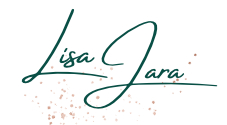



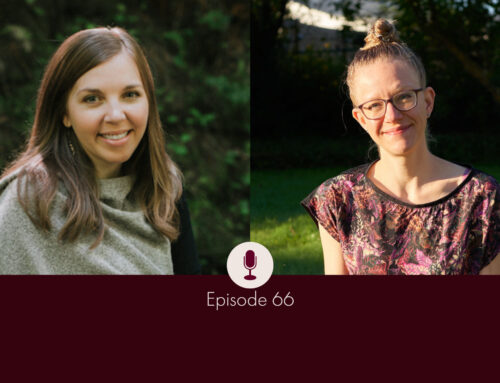
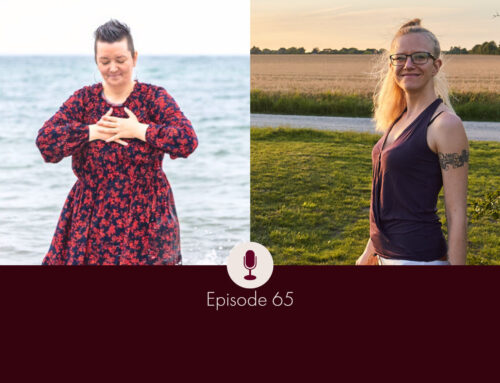
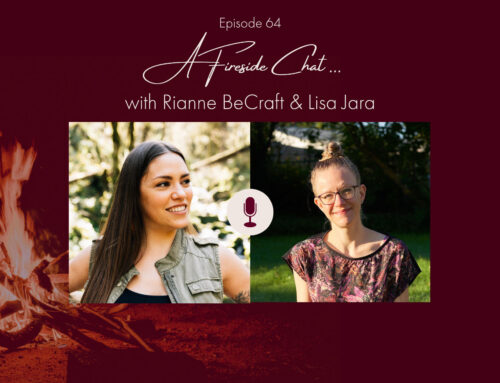
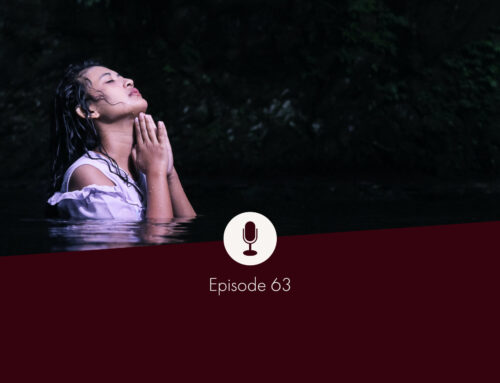
![Soothing the Inner Child to reduce Emotional Eating [Live Coaching]](https://lisa-jara.com/wp-content/uploads/2024/07/Womb-Whispers_Episode-60-Live-Coaching-Soothing-the-Inner-Child-to-reduce-Emotional-Eating_Beitrag-500x383.jpg)
